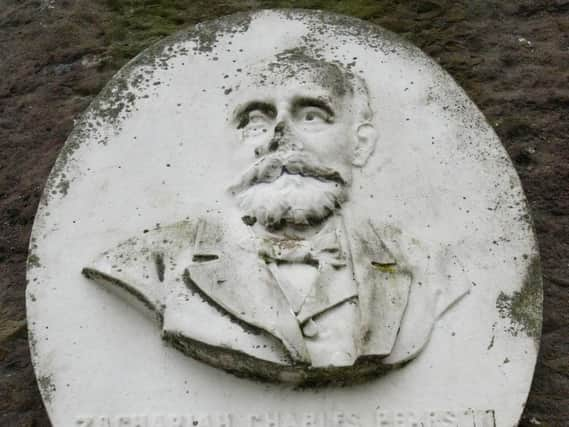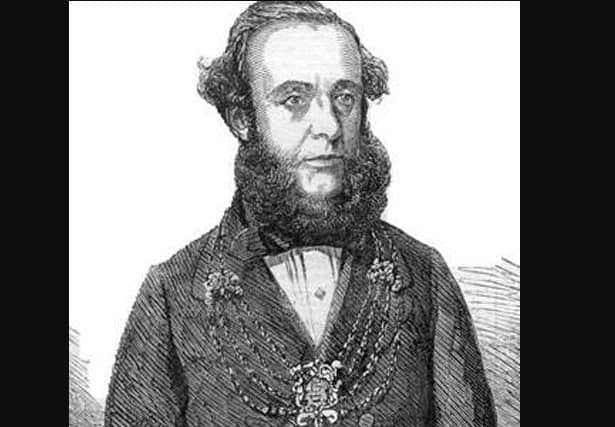Memorial to pro-slavery Confederate-supporting Mayor of Hull sparks concerns


An email sent to councillors stated the Pearson Memorial, in Pearson Park, could cause offence following the recent global backlash against statues depicting controversial historic figures.
The memorial is dedicated to Zachariah Pearson, who served as Hull’s mayor in the mid-1800’s.
Advertisement
Hide AdAdvertisement
Hide AdPearson was bankrupted after acquiring several ships in a failed attempt to break a naval blockade of the southern Confederacy and bring back bales of cotton for Hull’s mills.


It comes as statues in Britain and elsewhere have provoked ire from Black Lives Matter protesters for their links to slavery and racial oppression, with some being toppled or removed.
A spokesperson for Hull City Council said their review into statues was ongoing and declined to comment further.
Council Deputy Leader Daren Hale wrote in the email to councillors that the memorial was the “most concerning” of all those reviewed.
Advertisement
Hide AdAdvertisement
Hide AdCoun Hale said: “The statue is concerning because of Pearson’s role in trying to unblock the blockade on the Confederacy during the American Civil War. The war was fought over positions on slavery alongside other factors.
“Perhaps there is a case for a discussion as to whether another plaque may be needed to balance off the wholly positive view of this individual that would be gleaned from the statue.
“If we are moving to a digital information era we might need to provide useful information for lots of the city’s landmarks, buildings and memorials to re-narrate them, so both their good and bad points are factored in. This might be a more appropriate political education.
“I have not heard any clamour or statements from anybody in any capacity demanding action is taken on any of our structures or monuments, and we appear to be in a different position to many other cities.
Advertisement
Hide AdAdvertisement
Hide Ad“I would not want the diversionary issues of statues and monuments to distract from the far more salient issues about how this city responds to diversity, discrimination against and the need for inclusion of our increasingly growing BAME residents – and this is why we must seek to have concrete plans for going forward.”
Coun John Fareham, chair of the Pearson Park Trust, said: “As the review is ongoing into all statues and memorials, most of which could be offensive to someone, it wouldn’t be right to single out any one in particular for comment nor for me to express a view on behalf of a charity without taking into account the views of other trustees.”
Pearson’s attempted breaking of the blockade came during his second term as mayor shortly after the Civil War broke out in 1861, according to his Hull History Centre entry.
The closure of two Hull textile mills and subsequent job losses prompted Pearson to use ships acquired on credit to attempt runs on the blockade.
Advertisement
Hide AdAdvertisement
Hide AdThe imported cotton was grown and harvested by slaves on Confederate plantations. The northern Union’s blockade was designed to help defeat the pro-slavery rebels.
Pearson lost all 10 of his ships in the “disasterous” attempt to bring the cotton back to Hull.
He was declared bankrupt in 1864, two years after resigning as mayor, and lived at 64 Pearson Park until his death in 1891.
Pearson donated the land now occupied by the park to the city in 1860. The Pearson Memorial was put up in 1897.
Advertisement
Hide AdAdvertisement
Hide AdThe comments on the memorial follow calls to remove other statues and with similar links across the UK and the world.
Racial justice protesters claim their continued presence celebrates racial oppression and exploitation.
Those claims provoked a backlash from others, such as the demonstrators who travelled to London to ‘protect’ statues and monuments at the weekend.
The counter protests led to Black Lives Matter cancelling a planned demonstration in Hyde Park and to clashes with police.
Protesters have toppled some, including the statue of Edward Colston for his involvement with the Royal African Company slave trading firm.
Comment Guidelines
National World encourages reader discussion on our stories. User feedback, insights and back-and-forth exchanges add a rich layer of context to reporting. Please review our Community Guidelines before commenting.